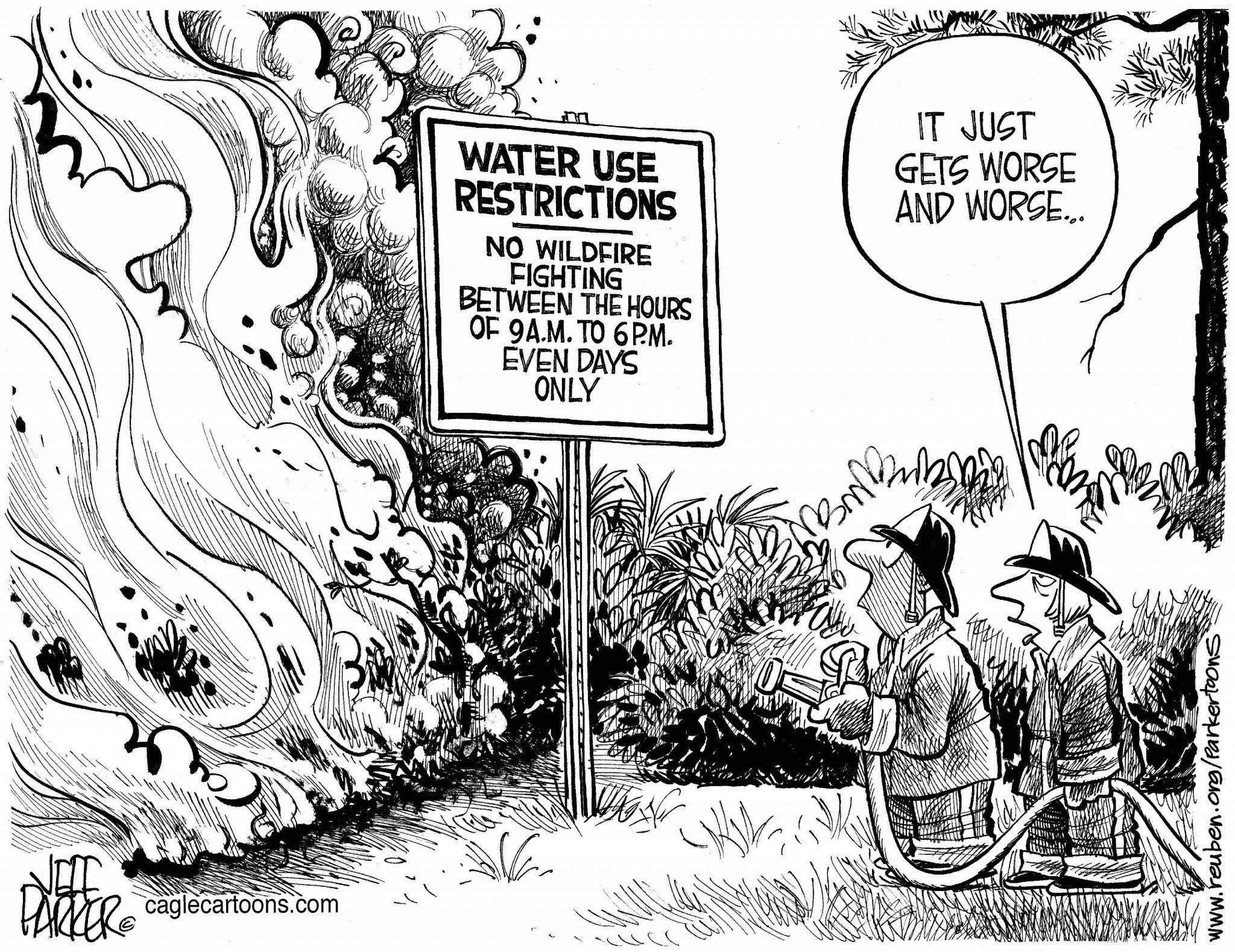BY DAVID PERRYMAN
 As a kid growing up in the 20th Century, I was keenly aware that Oklahoma was a “State of Seasons.” I am not talking about Spring, Summer, Fall or Winter. Equinoxes and Solstices occur everywhere. In Oklahoma, childhoods were measured by things like tornado season, calving season, watermelon season, ball season, and wildfire season.
As a kid growing up in the 20th Century, I was keenly aware that Oklahoma was a “State of Seasons.” I am not talking about Spring, Summer, Fall or Winter. Equinoxes and Solstices occur everywhere. In Oklahoma, childhoods were measured by things like tornado season, calving season, watermelon season, ball season, and wildfire season.
There was a time when each of those seasons could be pinpointed on the calendar. That is no longer the case. While some are still reliably constant, fall tornadoes are becoming too frequent and in a state that is in drought more often than not, wildfires are a constant danger anytime that winds get up.
For instance, even in what used to be a wetter month, this March much of Oklahoma has endured historic wildfires. While the Northwest Oklahoma Complex, consisting of three large wildfires in the Oklahoma panhandle and northwest Oklahoma has captured most of the news coverage, numerous other fires across Oklahoma have been keeping the State Forestry Department and literally hundreds of local fire departments busy around the clock.
The lack of leadership in Oklahoma has destroyed the state’s ability to allocate resources to control wildfires. According to this week’s OETA Stateline program, budget cuts have prevented Oklahoma from having trained personnel and equipment to fight fires and our state is increasingly dependent on other states to fight fires.
George Geissler, Oklahoma Forestry Services director, stated that support was called in from Arkansas, Louisiana and Kentucky and command over the fires in Northwest Oklahoma was transferred to a regional organization. Geissler also reported that additional aircraft was requested to support suppression of other fires around the state.
The fact that scores of homes and businesses have burned is devastating enough, but when the owners of those businesses worry whether reinvesting in areas lacking adequate fire protection is prudent, an adverse decision can literally destroy the economic stability of a rural community. Those considerations are not hyperbole. Fire protection and insurance rate increases go hand in hand and when insurance rates are too high, re-investment is at risk.
The bottom line is that the Oklahoma Legislature must stop toying with the lives of Oklahomans and the economic health of the rural communities in which they live. We must have rural fire protection as well as rural health care.
The budget issues facing Oklahoma need to be addressed once and for all. Oklahoma citizens and business owners should not be subjected to the annual budget woes and resulting cuts and revenue failures. Gov. Mary Fallin submitted a very unpopular and regressive sales tax plan. The lieutenant governor has no plan. The speaker of the House says that he has a plan, but will not let the public know about it.
Scott Inman and the Oklahoma House Democrats have unveiled a plan that closes the budget hole and provides funding for teachers and state employees to receive a raise. It is the Restore Oklahoma Plan. It reinstates the income tax rate on couples earning over $200,000 and restores oil and gas production taxes to just 5%. The plan will provide recurring revenue, properly fund education, provide money for roads and bridges and Restore Oklahoma by protecting services like fire protection and health care across the state.
– David Perryman, a Chickasha Democrat, represents District 56 in the Oklahoma House








